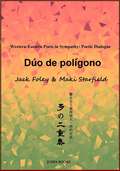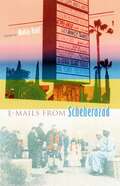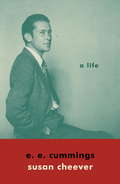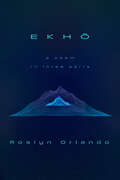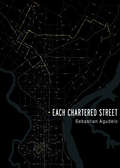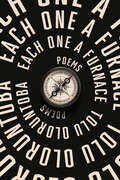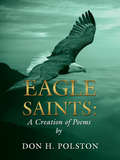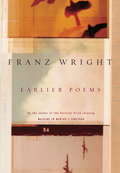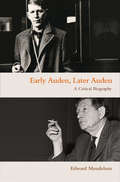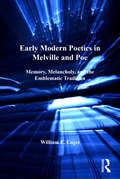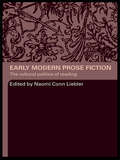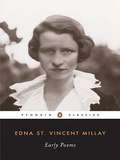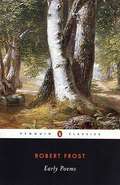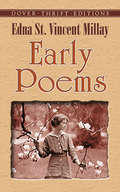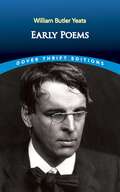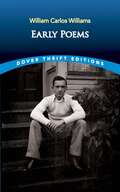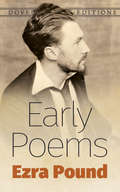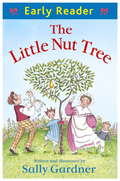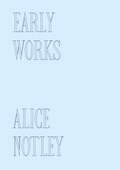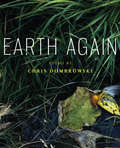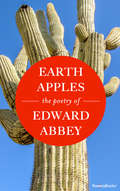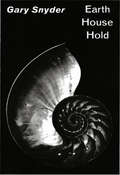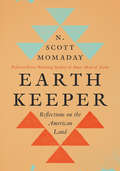- Table View
- List View
Dúo de polígono: Dúo de polígono
by Maki Starfield Jack FoleyEl poeta estadounidense Jack Foley y la poetisa japonesa Maki Starfield dialogaron sobre "Polygon". El primer capítulo se titula "Imagen múltiple" de Jack Foley, el segundo capítulo se titula "Colector" de Maki Starfield, y el tercer capítulo se titula "Haciendo eco de poemas" de ambos poetas. Maki no solo es poeta sino también artista, Jack es igual. Entonces, muestran su propia imagen múltiple en el libro.
E-mails from Scheherazad
by Mohja KahfThe author establishes herself as a new voice in the tradition of ethnic American poets, blending the experiences of recent Arab-American immigrants into contemporary American scenery. <p><p> In her poems, Muslim ritual and Qur'anic vocabulary move in next door to the idiom of suburban Americana, and the legendary Scheherazad of the Thousand and One Nights shows up in New Jersey, recast as a sophisticated postcolonial feminist. She carefully crafted poems do not speak only to important issues of ethnicity, gender, and religious diversity in America, but also to universal human themes of family and kinship, friendship, and the search for a place to pray. She chronicles the specific griefs and pleasures of the immigrant and writes an amulet for womanly power in the face of the world's terrors. <p><p> Her poetic energy is provocative and sassy, punctuated now and then with a darker poem of elegiac sadness or refined rage.
E. E. Cummings
by Susan CheeverFrom the author of American Bloomsbury ("Beguiling" --Publishers Weekly), Louisa May Alcott ("Fascinating . . . Another splendid piece of work with hidden depths by Susan Cheever"--Michael Korda), and Home Before Dark ("Moving and brilliantly restrained"--The New York Times Book Review), a major reassessment of the life and work of the novelist, painter, and playwright considered to be one of America's preeminent twentieth-century poets, our generation's beloved heretic. At the time of his death in 1962, at age sixty-eight, he was, after Robert Frost, the most widely read poet in the United States. E. E. Cummings was and remains controversial. He has been called "a master" (Malcolm Cowley); "hideous" (Edmund Wilson). James Dickey called him a "daringly original poet with more vitality and more sheer uncompromising talent than any other living American writer." In Susan Cheever's rich, illuminating biography we see Cummings's idyllic childhood years in a mythic part of Cambridge, Massachusetts (the Cummings house was within calling distance of Harvard professor William James, who first introduced Cummings's parents); his Calvinist father--distinguished Harvard professor and sternly religious minister of the Cambridge Congregational Church; his mother--loving, attentive, a source of encouragement, the aristocrat of the family, from Unitarian writers, judges, and adventurers. We see Cummings--slight, agile, playful, a product of a nineteenth-century New England childhood, bred to be flinty and determined; his love of nature ("here my enormous smallness entered Her illimitable being"); his sense of fun, laughter, mimicry; his desire from the get-go to stand conventional wisdom on its head, which he himself would often do, literally, to amuse. At Harvard, he roomed with John Dos Passos; befriended Lincoln Kirstein; read Latin, Greek, and French; earned two degrees; discovered alcohol, fast cars, and burlesque at the Old Howard Theater; and raged against the school's conservative, exclusionary upper-class rule by A. Lawrence Lowell. In Cheever's book we see that beneath Cummings's blissful, golden childhood the strains of sadness and rage were already at play. He grew into a dark young man and set out on a lifelong course of rebellion against conventional authority and the critical establishment, devouring the poetry of Ezra Pound, whose radical verses pushed Cummings away from the politeness of the traditional nature poem toward a more adventurous, sexually conscious form. We see that Cummings's self-imposed exile from Cambridge--a town he'd come to hate for its intellectualism, Puritan uptightness ("the Cambridge ladies," he wrote, "who live in furnished souls"), racism, and self-righteous xenophobia--seemed necessary for him as a man and a poet. Headstrong and cavalier, he volunteered as an ambulance driver in World War I, working alongside Hemingway, Joyce, and Ford Madox Ford . . . his ongoing stand against the imprisonment of his soul taking a literal turn when he was held in a makeshift prison for "undesirables and spies," an experience that became the basis for his novel, The Enormous Room, of which F. Scott Fitzgerald wrote: "Of all the work by young men since 1920--one book survives." We follow Cummings as he permanently flees to Greenwich Village to be among other modernist poets of the day--Marianne Moore, Hart Crane, Dylan Thomas--and we see the development of both the poet and his work against the backdrop of modernism and through the influences of his contemporaries: Stein, Amy Lowell, Joyce, and Pound.Cheever's fascinating book gives us the evolution of an artist whose writing was at the forefront of what was new and daring and bold in an America in transition.(With 28 pages of black-and-white images.)From the Hardcover edition.
EKHO: A Poem in Three Parts
by Roslyn OrlandoA profoundly playful poem in three parts, this work considers the echo as a social and historical phenomenon.From Ekhō, the nymph of Greek mythology whose voice was stolen by the gods, to the advent of Amazon&’s Echo smart speaker, the echo has been described as a condition of voicelessness, unfulfilled desire, loss, and entrapment. These poems reconsider echoing as a poetic practice and as an orienting device that tunes the world in to itself.Roslyn Orlando&’s debut collection combines Ancient Greek mythology with big tech to produce a philosophical, political, and psychological exploration of love, capitalism, resonance, and rage.
Each Chartered Street
by Sebastian AgudeloSebastian Agudelo's second book engages a documentary poetics to dissect an inner city neighborhood and explore the social, political, and economic tensions and affinities as well as search for the humanness of living together. The book is bracketed by an introductory section that looks to the past to contextualize and complicate the contemporary questions, and a closing section that looks to the future for a more global and environmental definition of what a neighbor might be. As Daisy Fried writes, "Each Chartered Street is a complicated, wonderful, humanist book about urban life and urban characters, novelistic in its reach, intricate in its lingo, literary in its references, and alive to the troubled streets of Philadelphia. Do put it on your list."
Each One a Furnace: Poems
by Tolu OloruntobaFrom the author of The Junta of Happenstance, here is a brilliant new collection of poems—a burning chronicle of passage and stillness and restlessness.Each One a Furnace explores (im)migration, diasporas, transience, and instability by following the behaviour, and abundant variety, of finches. The often-migratory birds in these poems typify the unrest, and inability to rest, that animate the lives of billions in the modern world. Out of the register of ornithology, themes of difficulty, adversity, and migrancy, urban ennui, and the psychic struggles of diasporic peoples take shape as those unable to be at rest in the world take to improbable flight. Trailing the global mobility of birds, in urban and non-urban settings, in historical and contemporary contexts, and through the metaphysical and concrete, Each One a Furnace is a chronicle of struggle within, and between, cultures.
Each Peach Pear Plum
by Janet Ahlberg Allan AhlbergThis is a rhyming picture book for young children. The characters are familiar from nursery rhymes and other children's books. (Examples: Jack and Jill and The Three Bears.) A charming book. This file should make a fine embossed braille copy.
Eagle Saints: A Creation of Poems by Don H. Polston
by Don H. PolstonEach poem you are about to read has a theme of the issues of life. The different waves and stages of living are found on each page, with every poem having an individual truth in itself. Polston's poetry is deep, insightful, and thought-provoking. He uses many metaphors to drive home messages about Jesus Christ, His church, and how to be victorious in every season of life. Gems are hidden in each stanza if we are willing to search them out and open our hearts.
Earlier Poems
by Franz WrightThis collection is a rich study in one poet's development--not simply Wright's journey from dark to light, but a revelation of the ways in which the darkness contained glimmers of what was to come.
Early Auden, Later Auden: A Critical Biography
by Edward MendelsonPresented in one volume for the very first time, and updated with new archival discoveries, Early Auden, Later Auden reintroduces Edward Mendelson's acclaimed, two-part biography of W. H. Auden (1907–73), one of the greatest literary figures of the twentieth century. This book offers a detailed history and interpretation of Auden’s oeuvre, spanning the duration of his career from juvenilia to his final works in poetry as well as theatre, film, radio, opera, essays, and lectures. Early Auden, Later Auden follows the evolution of the poet’s thought, offering a comparison of Auden’s views at various junctures over a lifetime. With penetrating insight, Mendelson examines Auden’s early ideas, methods, and personal transitions as reflected in poems, manuscripts, and private papers. The book then links changes in Auden’s intellectual, emotional, and religious experience with his shifting public role—showing the depth of his personal struggles with self and with fame, and the means by which these internal conflicts were reflected in his art in later years. Featuring a new preface by the author, Early Auden, Later Auden is an engaging and timeless work that demonstrates Auden’s remarkable range and complexity, paying homage to his enduring legacy.
Early Modern Poetics in Melville and Poe: Memory, Melancholy, and the Emblematic Tradition
by William E. EngelBringing to bear his expertise in the early modern emblem tradition, William E. Engel traces a series of self-reflective organizational schemes associated with baroque artifice in the work of Herman Melville and Edgar Allan Poe. While other scholars have remarked on the influence of seventeenth-century literature on Melville and Poe, this is the first book to explore how their close readings of early modern texts influenced their decisions about compositional practice, especially as it relates to public performance and the exigencies of publication. Engel's discussion of the narrative structure and emblematic aspects of Melville's Piazza Tales and Poe's "The Raven" serve as case studies that demonstrate the authors' debt to the past. Focusing principally on the overlapping rhetorical and iconic assumptions of the Art of Memory and its relation to chiasmus, Engel avoids engaging in a simple account of what these authors read and incorporated into their own writings. Instead, through an examination of their predisposition toward an earlier model of pattern recognition, he offers fresh insight into the writers' understandings of mourning and loss, their use of allegory, and what they gained from their use of pseudonyms.
Early Modern Prose Fiction: The Cultural Politics of Reading
by Naomi Conn LieblerEmphasizing the significance of early modern prose fiction as a hybrid genre that absorbed cultural, ideological and historical strands of the age, this fascinating study brings together an outstanding cast of critics including: Sheila T. Cavanaugh, Stephen Guy-Bray, Mary Ellen Lamb, Joan Pong Linton, Steve Mentz, Constance C. Relihan, Goran V. Stanivukovic with an afterword from Arthur Kinney. Each of the essays in this collection considers the reciprocal relation of early modern prose fiction to class distinctions, examining factors such as: the impact of prose fiction on the social, political and economic fabric of early modern England the way in which a growing emphasis on literacy allowed for increased class mobility and newly flexible notions of class how the popularity of reading and the subsequent demand for books led to the production and marketing of books as an industry complications for critics of prose fiction, as it began to be considered an inferior and trivial art form. Early modern prose fiction had a huge impact on the social and economic fabric of the time, creating a new culture of reading and writing for pleasure which became accessible to those previously excluded from such activities, resulting in a significant challenge to existing class structures.
Early Poems
by Millay Edna St. VincentOne of the most successful poets in America and a fascinating literary figure of the early twentieth century, Edna St. Vincent Millay found her voice in a national poetry contest at the age of twenty. Her poems received critical praise and became the first step toward receiving the Pulitzer Award years later. An acclaimed poet of the Jazz Age, this liberated, often rebellious, woman enchanted us with her beautiful sonnets and lyrics, even as she surprised us with her unconventional personal life. This vibrant volume includes the complete selection of poems from Millay's first three books. Each gem reflects a different facet of the author's versatility. Renascence and Other Poems was Millay's first collection of poetry, a literary sensation when it was published in 1912. Acclaimed by critics for its remarkable use of compelling language and imagery, it is a deeply personal work that reflects the poet's spiritual awakening, using the themes of death and resurrection. In contrast, the poetry in A Few Figs from Thistles represents a cynical stage, a time of rebellion, and a search for personal freedom, as depicted in her famous line, "My candle burns at both ends. " Part beauty, part despair, the free verse and heartfelt sonnets of Second April are an expression of Millay's feelings about love and disillusionment. Eloquent, daring, and sometimes bittersweet, these masterful lyrics exemplify the best work of a complex, passionate, and gifted poet. Includes a selection from the Common Core State Standards Initiative: "Afternoon on a Hill. "
Early Poems
by Robert FrostThis volume presents Frost’s first three books, masterful and innovative collections that contain some of his best-known poems, including "Mowing," "Mending Wall," "After Apple-Picking," "Home Burial," "The Oven Bird," "Birches," and "The Road Not Taken. " .
Early Poems (Dover Thrift Editions: Poetry)
by Edna St. MillayOne of the most successful poets in America and a fascinating literary figure of the early twentieth century, Edna St. Vincent Millay found her voice in a national poetry contest at the age of twenty. Her poems received critical praise and became the first step toward receiving the Pulitzer Award years later. An acclaimed poet of the Jazz Age, this liberated, often rebellious, woman enchanted us with her beautiful sonnets and lyrics, even as she surprised us with her unconventional personal life. This vibrant volume includes the complete selection of poems from Millay's first three books. Each gem reflects a different facet of the author's versatility.Renascence and Other Poems was Millay's first collection of poetry, a literary sensation when it was published in 1912. Acclaimed by critics for its remarkable use of compelling language and imagery, it is a deeply personal work that reflects the poet's spiritual awakening, using the themes of death and resurrection. In contrast, the poetry in A Few Figs from Thistles represents a cynical stage, a time of rebellion, and a search for personal freedom, as depicted in her famous line, "My candle burns at both ends." Part beauty, part despair, the free verse and heartfelt sonnets of Second April are an expression of Millay's feelings about love and disillusionment. Eloquent, daring, and sometimes bittersweet, these masterful lyrics exemplify the best work of a complex, passionate, and gifted poet. Includes a selection from the Common Core State Standards Initiative: "Afternoon on a Hill."
Early Poems (Dover Thrift Editions: Poetry)
by William Butler YeatsOne of the greatest poets of any century, the Nobel laureate William Butler Yeats (1865–1939) drew upon Irish folklore and myth as inspiration for much of his early poetry. Mythic themes as well as many other topics are masterfully explored in this rich selection of 134 lyrics chiefly selected from six volumes of verse published between 1889 and 1914. Among the poems included are "The Stolen Child" and "Down by the Salley Gardens" (Crossways, 1889); "To the Rose upon the Rood of Time," "The Lake Isle of Innisfree," "When You Are Old," and "To Ireland in the Coming Times" (The Rose, 1893); "The Song of Wandering Aengus" and "A Poet to His Beloved" (The Wind Among the Reeds, 1899); "The Song of Red Hanrahan" (In the Seven Woods, 1903); "No Second Troy" and "The Fascination of What's Difficult" (The Green Helmet and Other Poems, 1910); "To a Friend Whose Work Has Come to Nothing" and "To a Shade" (Responsibilities, 1914); and many more. This representative selection offers readers a splendid sampling of the distinctive Yeatsian voice — romantic, yearning, full of the magic and mysticism Yeats imbibed as a boy in the West of Ireland, later counterbalanced by an anguished realism grounded in the poet's nationalistic and political sympathies.
Early Poems (Dover Thrift Editions: Poetry)
by William Carlos WilliamsOne of the most original and widely imitated poets of the twentieth century, William Carlos Williams (1883–1963) wrote verse firmly rooted in concrete experience and the particulars of everyday life. A practicing physician for more than 40 years, Williams worked in the idiom of modern American speech ― unlike his friend and mentor, Ezra Pound ― and his poems are redolent with a warmth and generosity of spirit. The Beat poets were particularly impressed with the accessibility of his language, and Williams's widely quoted dictum, "No ideas but in things," influenced a generation of American poets.This fine selection offers readers the opportunity to study and enjoy the richness and variety of Williams's early work. More than 70 poems, published between 1917 and 1921, include "Peace on Earth," "Tract," "El Hombre," "Danse Russe," "Keller Gegen Dom," "Willow Poem," "Queen-Anne's-Lace," "Portrait of a Lady," "The Widow's Lament in Springtime," and many others.
Early Poems: The Early Poems Of Ezra Pound (classic Reprint) (Dover Thrift Editions)
by Ezra PoundAmerican poet Ezra Pound (1885-1972) was among the most influential literary figures of the twentieth century. As a poet, he founded the Imagist movement (c. 1909-17), which advocated the use of precise, concrete images in a free-verse setting. As an editor, he fostered the careers of William Butler Yeats, T. S. Eliot, and Robert Frost. As a force in the literary world, he championed James Joyce and Wyndham Lewis. Pound also helped to create a modern movement in poetry in which, in T. S. Eliot's words, "English and American poets collaborated, knew each other's works, and influenced each other."Long an expatriate, Pound's questionable political activities during World War II distracted many from the value of his literary work. Nevertheless, his status as a major American poet has never been in doubt, as this choice collection of fifty-seven early poems amply proves. Here are poems -- including a number not found in other anthologies -- from Personae (1909), Exultations (1909), Ripostes (1912), and Cathay (1915) as well as selections from his major sequence "Hugh Selwyn Mauberley" (1920).
Early Reader: The Little Nut Tree
by Sally GardnerEarly Readers are stepping stones from picture books to reading books. A blue Early Reader is perfect for sharing and reading together. A red Early Reader is the next step on your reading journey.A brand new Early Reader edition of million-copy selling, CARNEGIE MEDAL-winning Sally Gardner's picture book based on the favourite nursery rhyme.
Early Vision
by Samuel Taylor Coleridge Richard HolmesRichard Holmes edits a collection of poems by Samuel Taylor Coleridge, a pioneer of English Romanticism.
Early Works
by Alice NotleyEarly Works collects Alice Notley’s first four out of print poetry collections, along with 80 pages of previously uncollected material. A must have for any Notley fan. Includes original collection cover artwork by Philip Guston, Philip Whalen and George Schneeman, among others.
Earth Again: Poems (Made In Michigan Writers Ser.)
by Chris DombrowskiThe second full-length collection from award-winning poet Chris Dombrowski, Earth Again transports readers to an imaginative world where identity is explored and expanded. With a mixture of long poems and shorter pieces, Dombrowski probes birth, death, sex, memory, and our blessed but treacherous engagement with the natural world. While he writes from a number of points of view and employs both male and female speakers, much of the collection's singular insight centers around masculine identity and being a husband and a father. Readers come away transformed, "like the land / gasping as it does each late winter evening when / the sky at tree line, nearly sapphiric, goes black," as these poems prove Dombrowski to be a truly original American voice. Comprised of three sections-each of which concludes with a long poem-Earth Again presents a range of narrative and emotions in dexterous rhythms, unexpected shifts, and unforgettable metaphors. Dombrowksi introduces readers to arresting images like "the parataxis of her ass," "cerulean, alchemical light," "Molly with the sun in her mouth," and "labyrinthine, lanky-stemmed, dew-magnified" leaves. These details combine with Dombrowski's note-perfect language, which alternates between the most colloquial and the most elevated of diction. Readers will be challenged to consider spirituality alongside Scooby-Doo Band-aids, and to meditate on death after the mower has chewed up a plastic dinosaur, as Dombrowski revels in exploring our connection to the environment and one another. Fans of Dombrowski's previous collection, By Cold Water (which was noted as a contemporary poetry bestseller by the Poetry Foundation in 2009), along with other poets and poetry lovers will appreciate the attention to detail and the imaginative intensity of the poems in Earth Again.
Earth Apples: The Poetry of Edward Abbey
by Edward AbbeyPoems about love and landscapes by the author of the classic Desert Solitaire, an &“environmentalist, nature writer, novelist and all-around iconoclast&” (The New York Times). While better known for his nature writing and his comic classic The Monkey Wrench Gang, Edward Abbey was also an enthusiastic creator of verse. The New York Times called his memoir Desert Solitaire &“deeply poetic&”—and now Earth Apples gives us his actual poetry, in Abbey&’s first and only collection. Whether writing about vast desert landscapes, New York City, or a love of bawdy women, Abbey's verse is eloquent, irreverent, and unapologetically passionate. The poems gathered here, published digitally for the first time, are culled from Abbey&’s journals and give an insightful and unique glance into the mind of this literary legend.
Earth House Hold
by Gary SnyderBoth Pound and Williams have shown a good poet can revitalize prose style. Earth House Hold (a play on the root meaning of "ecology"), drawn from Gary Snyder's essays and journals, may prove a landmark for the new generation. "As a poet," Snyder tells us, "I hold the most archaic values on earth. They go back to the late Paleolithic; the fertility of the soil, the magic of animals, the power-vision in solitude, the terrifying intuition and rebirth; the love and ecstasy of the dance, the common work of the tribe." He develops, as replacement for shattered social structures. a concept of tribal tradition which could lead to "growth and enlightenment in self-disciplined freedom. Whatever it is or ever was in any other culture can be reconstructed from the unconscious through meditation...the coming revolution will close the circle and link us in many ways with the most creative aspects of our archaic past."
Earth Keeper: Reflections on the American Land (Native Keepers)
by N. Scott MomadayA beautifully written and poignant tribute to the Earth, from Pulitzer Prize-winning novelist and poet N. Scott Momaday. <p><p> One of the most distinguished voices in American letters, N. Scott Momaday has devoted much of his life to celebrating and preserving Native American culture, especially its oral tradition. A member of the Kiowa tribe who was born and grew up on Indian reservations throughout the Southwest, Momaday has an intimate connection to the land he knows well and loves deeply. <p> In Earth Keeper: Reflections on the American Land, he reflects on his native ground and its influence on his people. “When I think about my life and the lives of my ancestors, I am inevitably led to the conviction that I, and they, belong to the American land. This is a declaration of belonging. And it is an offering to the earth.” he writes. <p> Momaday recalls stories of his childhood, stories that have been passed down through generations, stories that reveal a profound and sacred connection to the American landscape and a reverence for the natural world. <p> In this moving and lyrical work, he offers an homage and a warning. Momaday reminds us that the Earth is a sacred place of wonder and beauty; a source of strength and healing that must be protected before it’s too late. As he so eloquently yet simply expresses, we must all be keepers of the Earth.
